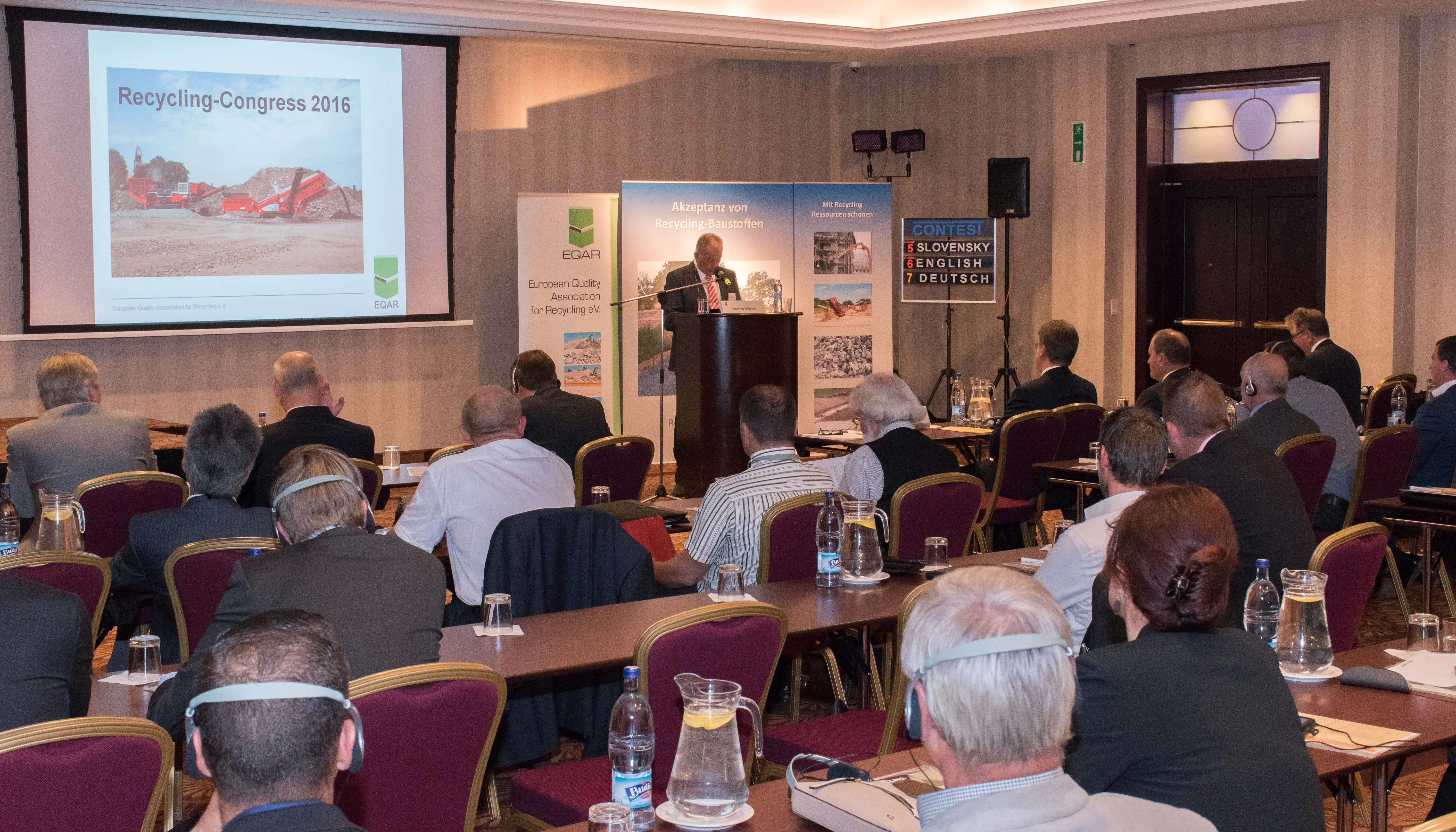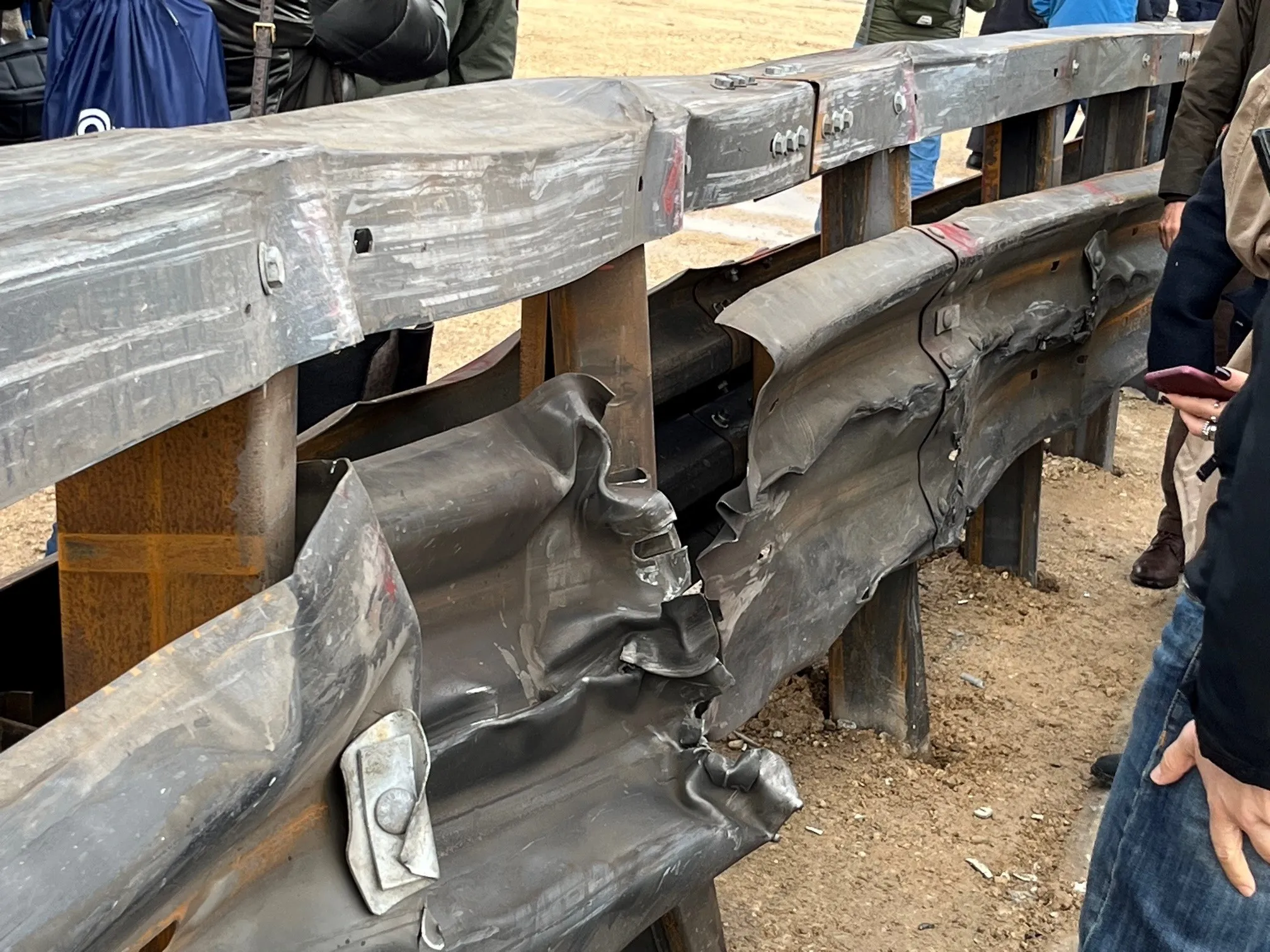A European-wide construction material recycling strategy should be put in place as soon as possible, according to the European Quality Association for Recycling.
EQAR made the call during its annual Congress in the Slovakian capital Bratislava, Slovakia, and on the occasion of its 10th anniversary.
In his inaugural address, EQAR president Manfred Wierichs said that recycling of construction material differs greatly among European Union states. This is the case even though construction material recycli
October 13, 2016
Read time: 2 mins

A European-wide construction material recycling strategy should be put in place as soon as possible, according to the 5473 European Quality Association for Recycling.
EQAR made the call during its annual Congress in the Slovakian capital Bratislava, Slovakia, and on the occasion of its 10th anniversary.
In his inaugural address, EQAR president Manfred Wierichs said that recycling of construction material differs greatly among European Union states. This is the case even though construction material recycling is indispensable for avoiding waste and protecting the European landscape.
Congress delegates heard that in the Czech republic, 700,000 tonnes of construction waste per year is dumped in urban regions.
It was also disappointing, Wierichs said, that even in Slovakia, no one from the Ministry of the Environment - the ministry responsible for construction material recycling – was willing to make a presentation at the congress.
There are few national targets for construction and demolition waste recycling which would be essential for developing a European-wide comprehensive recycling market.
Vincent Basuyau, policy officer for sustainable construction at the European Union Commission, told delegates that according to the EU Waste Framework Directive all EU countries are obliged to re-use or recycle at least 70% of the harmless construction and demolition wastes up to 2020. So far some of the EU countries have not reached these targets and the Commission remains willing to support national educational efforts through training courses and technological investment, he said.
Basuyau added that the Commission recently finalised the EU Construction & Demolition Waste Management Protocol that contains numerous best-practice examples of recycling construction and demolition waste.
The Austrian Construction Materials Recycling Association suggested that minimum rates for recycled materials should be prescribed in tenders during the procurement process. So far only five EU member countries adopted respective end-of-waste criteria, all with differing legal authority over their implementation.
Adoption of EU-wide end-of-waste criteria would help create an internal European market for construction products.
During the congress, GB Energy Holding, from Brno in the Czech republic, picked up an award for its recycling of demolition wastes into concrete and concrete components. Second prize was awarded to Bernegger, from Molln in Austria, for its container-mobile wet screening plant for soil and residual construction mass processing.
EQAR made the call during its annual Congress in the Slovakian capital Bratislava, Slovakia, and on the occasion of its 10th anniversary.
In his inaugural address, EQAR president Manfred Wierichs said that recycling of construction material differs greatly among European Union states. This is the case even though construction material recycling is indispensable for avoiding waste and protecting the European landscape.
Congress delegates heard that in the Czech republic, 700,000 tonnes of construction waste per year is dumped in urban regions.
It was also disappointing, Wierichs said, that even in Slovakia, no one from the Ministry of the Environment - the ministry responsible for construction material recycling – was willing to make a presentation at the congress.
There are few national targets for construction and demolition waste recycling which would be essential for developing a European-wide comprehensive recycling market.
Vincent Basuyau, policy officer for sustainable construction at the European Union Commission, told delegates that according to the EU Waste Framework Directive all EU countries are obliged to re-use or recycle at least 70% of the harmless construction and demolition wastes up to 2020. So far some of the EU countries have not reached these targets and the Commission remains willing to support national educational efforts through training courses and technological investment, he said.
Basuyau added that the Commission recently finalised the EU Construction & Demolition Waste Management Protocol that contains numerous best-practice examples of recycling construction and demolition waste.
The Austrian Construction Materials Recycling Association suggested that minimum rates for recycled materials should be prescribed in tenders during the procurement process. So far only five EU member countries adopted respective end-of-waste criteria, all with differing legal authority over their implementation.
Adoption of EU-wide end-of-waste criteria would help create an internal European market for construction products.
During the congress, GB Energy Holding, from Brno in the Czech republic, picked up an award for its recycling of demolition wastes into concrete and concrete components. Second prize was awarded to Bernegger, from Molln in Austria, for its container-mobile wet screening plant for soil and residual construction mass processing.







